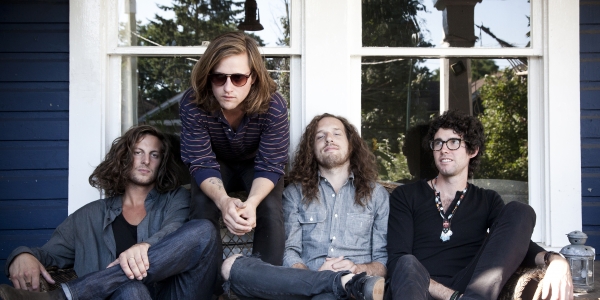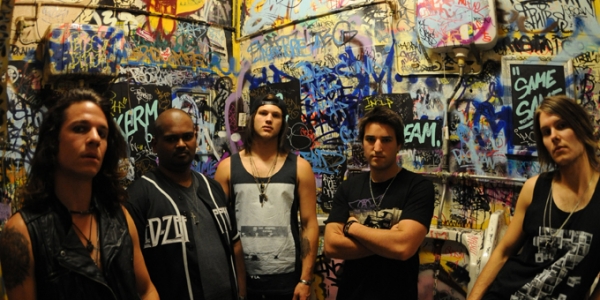“We don’t think of ourselves as a quintessentially Canadian band,” says lead singer/guitarist Jeff Innes, “But everyone knows right away where we’re from.”
Still, there’s much more to Yukon Blonde than their apparent hoser associations. Originally hailing from the rocky mountain city of Kelowna, British Columbia before relocating to the musical hotbed of Vancouver, Yukon Blonde’s lush, harmony-laden and melodic folk-rock has always gotten a boost from its surroundings. When asked if the natural beauty of British Columbia has an effect on the band’s sound, Innes admits that while it has, they’ve also benefitted from British Columbia in other ways.
“We were working with Colin Stewart, who’s done a lot of (Famed British Columbia bands) Black Mountain and Ladyhawk records,” says Innes, reached on the phone from Little Rock, Arkansas as the band begins an American tour. “As far as a geography, it’s been a huge influence too, because it’s kind of hard to escape, right?”
With two EPs and a critically-acclaimed self-titled full length under their belt, Yukon Blonde are quickly becoming one of the more prominent folk rockers to emerge out of the growing crop of bands in the Pacific Northwest. There’s a subtle intensity to their aesthetic, not the least of which can be heard on Fire/Water, their latest EP. When the question of influence from their peers was posed to Innes, he took a more historical approach.
“Some of the songs, especially Water started out as this super messy garage thing. But we’re always big on harmonies; they’re something that’s really important in this band. We started mellowing out, the more we played it. It became very refined, and then we realised that’s what’s going on right now in the Pacific Northwest. Bands used to sound very heavy and grungy, but things are sounding a lot more mellow these days.”
With their pastoral, campfire sound in tow, Yukon Blonde continue to become the kind of band which would make a perfect accompaniment to long road trips into unknown territory. Coincidentally enough, heading out into the unknown is an important part of the recording process for Yukon Blonde. Innes gives insight into the band’s mechanisms and details how a song begins and ends with the band.
“We have a record coming out in the new year, and Fire/Water is a product of those sessions. Schoolkids was a collaborative, but otherwise, when I have the time, I just write and demo and make these little recordings. I do it because I like doing it. And then every once and awhile the band will go through and pick a bunch of songs and start working on them. Then we usually hole up somewhere and start arranging them. In the case of this record, we went to a remote location in the north of Vancouver Island.”
“We spent two weeks there,” continues Innes, “Working 12 hours a day on the songs. We were then supposed to go on tour directly after that, so we started putting together some newer songs during that period as well. Obviously the crowd wouldn’t know it, but there were some songs that we’d play in cities across Canada, and it would be the first time we’d be playing these songs live. It would even be the first time we’d be practicing these songs,” admits Innes with a chuckle.
Don’t accuse Yukon Blonde of taking their music lightly though. From writing to recording, things are done rather methodically, following a step-by-step process which has consistently served the band well. They’re the kind of band which set out into the wild with a map, confident of what they’re after.
With their first trip to Australia fast approaching, Jeff Innes and Yukon Blonde are going to have to rely on their experiences as a band that has truly mastered the wild.
“One of the things that helps me when I’m in a writing phase is to isolate myself. I’ll come back a few days later. But now, as a band, we’re starting to realise that that approach works for all of us. When we isolate ourselves, we don’t bring anyone else. No engineers, no nothing. No internet, television. We just spend this time working on the songs; it’s nice to not have that kind of outside influence. And then when it comes time to get into a studio to actually record the songs, it doesn’t really matter where we record them, because we’ve pretty much recorded the base of the songs.”

